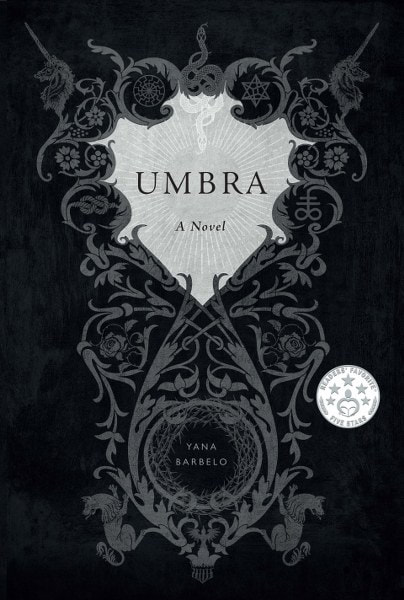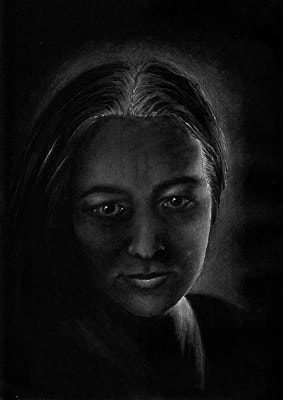A Beast Called
"Translingual Writer."
By Yana Barbelo
It sounds fancy, trans-ling-ual, but in reality, it's simple. You are born into one language. You die in another, and somewhere in-between, you get possessed by a desire to tell a story, not in your mother's tongue. I'm one of those. I wrote my debut novel Umbra in my 40's, and I spoke not a word of English until well into my 20's. Chances are, the last words I'll speak and hear will be English as well. So, it is simple. But not easy.
Like most immigrants, I came to the New World with not a penny to my name. For years I had to work long days and numbing jobs for miserly pay. I had no time or money to sit in class and "study English." But I longed for it! Oh, how much I longed to roll your words off my tongue as if they were my own, to understand you, your laughing, your crying, and what did you write in zillion papers I had to sign. But most of all, I longed to hear your stories. The books you've written, the tales you've told.
At a time, I lived in an antiquated Brooklyn apartment building with a communal laundromat in a basement. As it was a custom of the tenants to dump old stuff in the basement, I sometimes entertained myself by going through the piles of broken toys and kitchenware while waiting for my laundry. But one lucky day, there was a book. One discarded, worn-out book, wavy pages, and no cover. This book was in bed with me that very night.
For the first 100 pages or so, my "reading" consisted of recognizing familiar words here and there. I have no idea how, but I figured the story was set in the olden days. An unhappy young woman was going from one depressing place to another. That was about it. My head was throbbing as I stared at words, trying to divine their meaning. I did not use any translator. I believed that if I tried hard enough, my brain would somehow grasp the language in its entirety. Besides, I felt very proud of myself. I was reading a real English book, never mind the elusive plot.
After many hours of this self-imposed torture (masochistic, in one friend's opinion), I reached the end of the book. An unhappy young woman, having gone through many trials and tribulations, finally reunited with her beloved. She was now happy, even though her beloved was blind and crippled. He survived one terrible fire, and they would live happily ever after. I understood! The book didn't have a cover or a title page, but I was pretty sure I just finished Jane Eyre. (I read it in Russian translation many years before).
During this torturous experiment, my brain must have built a stellar "highway system" that enabled me to further learn English with incredible speed and efficiency, without tutors or translators. I learned the language not by translations but by associations, anew, as children do. In a certain sense, English is not my second language, but my "second first language." Still, I am a translingual writer.
Every language paints a picture of a world that is different, unique. Being fluent in two languages is to know two worlds. But you cannot live in two worlds simultaneously. Like Nabokov and Brodsky, and many others, I exist between the worlds. I'm acutely nostalgic for elegant, expressive English when I speak Russian. I'm missing complex, nuanced Russian when I speak English. I always miss one or the other. By becoming translingual, I submitted to the life of perpetual longing for the unattainable.
But I want to believe there is a gift in this suffering. When I was writing Umbra, I found myself in constant search of expressions that would effectively merge my Russian roots with my English crown. Thus, Umbra is a linguistic hybrid. All translingual novels are, even if a writer is entirely unaware of it. It's unavoidable, nor it should be. I think there is a lot to be gained from reading such hybrids. They are like spells, working their magic below our conscious awareness.
Contrary to popular belief, the language's primary function
is not to express ourselves but to make an internal representation of the outer
world, to make meaning. Translingual novels, being linguistic hybrids, work on the psyche's archaic levels,
enhancing our ability to perceive complexity and make sense of it. They may be
one of the much-needed remedies against the pernicious malaise of our time, the
poverty of meaning.





No comments:
Post a Comment